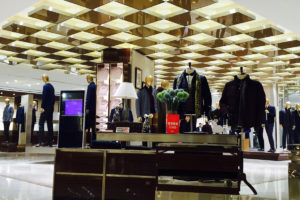 We’ve all been there, we are on our way to work and the next thing you know you come to a standstill. Cars backed up as far as you can see and no one is going anywhere. The clock is ticking away and you begin to worry knowing you are going to be late getting to the office. You look for a side street to try to get out of the mess then, someone with a little bit of guts and a four-wheel drive truck pulls onto the shoulder of the road and speeds by everyone to get to their destination. Everyone gets to where they are going but some people are determined not to let obstacles get in their way and they take the fast track to get there. They went the same route they just overcame the obstacles that would get in their way.
We’ve all been there, we are on our way to work and the next thing you know you come to a standstill. Cars backed up as far as you can see and no one is going anywhere. The clock is ticking away and you begin to worry knowing you are going to be late getting to the office. You look for a side street to try to get out of the mess then, someone with a little bit of guts and a four-wheel drive truck pulls onto the shoulder of the road and speeds by everyone to get to their destination. Everyone gets to where they are going but some people are determined not to let obstacles get in their way and they take the fast track to get there. They went the same route they just overcame the obstacles that would get in their way.
Retail can be like that too. A new store may start off doing pretty well and may even see growth the first few years. Over time the store does nothing new, profits stagnate or start to decline a little but it is just blamed on a slowdown in the economy.
The media and industry trade journals attribute the decline in sales in brick and mortar stores to online competition and the ease of shopping at home. I liken this to getting stuck in traffic and not being able to see more than a hundred yards ahead of where you are. You guess there is an accident or you assume there is a traffic light out and it is certainly not your fault you are going to be late for work. Does that HAVE to keep you from getting through to your destination? I argue that it does not. The innovator takes a risk, gets on the shoulder of the road and blazes on by everyone else in the traffic jam. Is there risk? Yes, and notice I did not say the innovator plows through all the other cars leaving mass destruction in his wake. The risk is to the driver and his vehicle because he could run over an unseen hazard in the dirt or run into a ditch. The other vehicles are safe as they idle and slowly start to run out of gas. The risk taker measures the risk and determines that the payoff is worth the risk he/she is taking.
So how does all of this relate to shortage and profitability? Some store owners have chosen to operate their businesses without the use of any type of retail anti-theft devices. The store may conduct inventory and losses show up but the owner decides that the losses are related to operational issues rather than theft or fraud. Another inventory cycles and shrink goes up a bit but there is little thought given to the Impact of shoplifting. Over the years the shrink gradually creeps up just a little at a time and sales remain basically where they have been. That shortage is eating into the profit line of that retailer but no one takes notice. Eventually theft impacts the store to the point where it is too late to regain control and the owner is forced out of business. He’s just sitting in the backed up lane of traffic waiting to run out of gas and get pushed off to the side of the road. Had proactive steps been taken the problem could have been avoided. Had the owner chosen to install an electronic article surveillance towers at the doors and use tags on merchandise theft would have been prevented before things spun out of control.
Improving shortage means improved profits for store owners. The use of retail anti-theft devices and looking for fresh, new ideas to bring in additional customers can be the combination that keeps a store from falling by the wayside. You have the green light to get in the fast lane and pass up your competition.
 Turnover for many businesses can be a real headache. You take the time to post job ads, review job applications, set up interviews and then conduct the interviews. Your new hire starts and within a couple of weeks they quit. It happens far too many times and it is a pain. Why did the person quit? Did they have a propensity for job hopping already and you missed it on the job application? Did they start stealing from you and got enough money or merchandise and quit before you caught on to their schemes? Perhaps it was a young employee on their first job and they wanted more weekends and night shifts off so they could “hang out” with their friends. All of these are reasons for high turnover in retail stores especially. Lose too many people at once and it can cripple your business, stretch the staff you currently have and it may potentially lead to more employees quitting.
Turnover for many businesses can be a real headache. You take the time to post job ads, review job applications, set up interviews and then conduct the interviews. Your new hire starts and within a couple of weeks they quit. It happens far too many times and it is a pain. Why did the person quit? Did they have a propensity for job hopping already and you missed it on the job application? Did they start stealing from you and got enough money or merchandise and quit before you caught on to their schemes? Perhaps it was a young employee on their first job and they wanted more weekends and night shifts off so they could “hang out” with their friends. All of these are reasons for high turnover in retail stores especially. Lose too many people at once and it can cripple your business, stretch the staff you currently have and it may potentially lead to more employees quitting.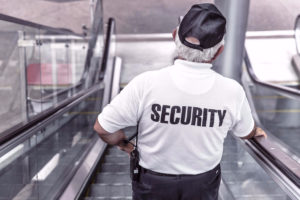
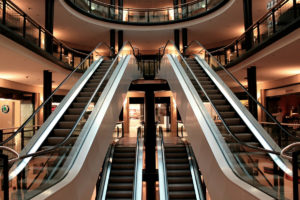
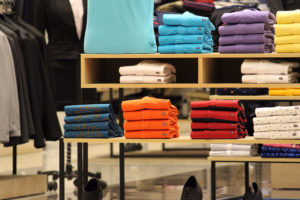 Retail shelving along with store design has a huge impact on shoplifting losses. Typically a shoplifter likes and needs privacy even if only for a moment. So why not keep that in mind when designing or remodeling your store. Your shelving and isles can work for you by simply considering several factors.
Retail shelving along with store design has a huge impact on shoplifting losses. Typically a shoplifter likes and needs privacy even if only for a moment. So why not keep that in mind when designing or remodeling your store. Your shelving and isles can work for you by simply considering several factors. Growing up did you ever do something dumb and your mom or your dad would ask you, “What were you thinking?” Having lived in south for the past 32 years I have learned of the local colloquialism when someone does something stupid, “Didn’t your momma teach you better?” Unfortunately, as a young boy I did a lot of dumb things making me wonder if my brain developed a lot later in life than most people. For example, I had a propensity for walking behind batters warming up to go to the plate for my father’s teen baseball teams. I ended up with more than one fat lip from my stupidity…obviously not learning the lesson the first time. I had a fascination with electrical outlets and wires and old rotary dial telephones…I won’t go into details but no they didn’t work when the wires were pushed into the outlet, I was not injured but I had one very busy guardian angel.
Growing up did you ever do something dumb and your mom or your dad would ask you, “What were you thinking?” Having lived in south for the past 32 years I have learned of the local colloquialism when someone does something stupid, “Didn’t your momma teach you better?” Unfortunately, as a young boy I did a lot of dumb things making me wonder if my brain developed a lot later in life than most people. For example, I had a propensity for walking behind batters warming up to go to the plate for my father’s teen baseball teams. I ended up with more than one fat lip from my stupidity…obviously not learning the lesson the first time. I had a fascination with electrical outlets and wires and old rotary dial telephones…I won’t go into details but no they didn’t work when the wires were pushed into the outlet, I was not injured but I had one very busy guardian angel.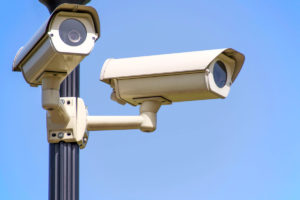 Loss Prevention Officers and Managers catch shoplifters and dishonest employees. That is a common perception and in some stores it may be a true picture of what Loss Prevention departments do, with the additional caveat that they may have uniformed people who conduct receipt checks. If this is all that the department does it can be hard to sell store managers on the value of having them on staff if the budget for them comes directly from the store. It is even more difficult for small, independent retailers to justify hiring a Loss Prevention Officer although if the store is in a high crime area they may contract a security guard. There was a time when there was an “us versus them” mindset between store managers and Loss Prevention teams. Over time some larger companies have focused their Loss Prevention teams more on operational issues. For example, I worked for a company that had Loss Prevention conduct food product out of date audits. Their position was that this was a safety issue so it fell to the Loss Prevention team. I had no problem doing the audits, but as I looked at the amount of out of date items I was finding I had to question what the freight team was doing when they were stocking. Who was auditing their work because there were a lot of FIFO (First In First Out) issues I was identifying that were causing out of date problems.
Loss Prevention Officers and Managers catch shoplifters and dishonest employees. That is a common perception and in some stores it may be a true picture of what Loss Prevention departments do, with the additional caveat that they may have uniformed people who conduct receipt checks. If this is all that the department does it can be hard to sell store managers on the value of having them on staff if the budget for them comes directly from the store. It is even more difficult for small, independent retailers to justify hiring a Loss Prevention Officer although if the store is in a high crime area they may contract a security guard. There was a time when there was an “us versus them” mindset between store managers and Loss Prevention teams. Over time some larger companies have focused their Loss Prevention teams more on operational issues. For example, I worked for a company that had Loss Prevention conduct food product out of date audits. Their position was that this was a safety issue so it fell to the Loss Prevention team. I had no problem doing the audits, but as I looked at the amount of out of date items I was finding I had to question what the freight team was doing when they were stocking. Who was auditing their work because there were a lot of FIFO (First In First Out) issues I was identifying that were causing out of date problems.
